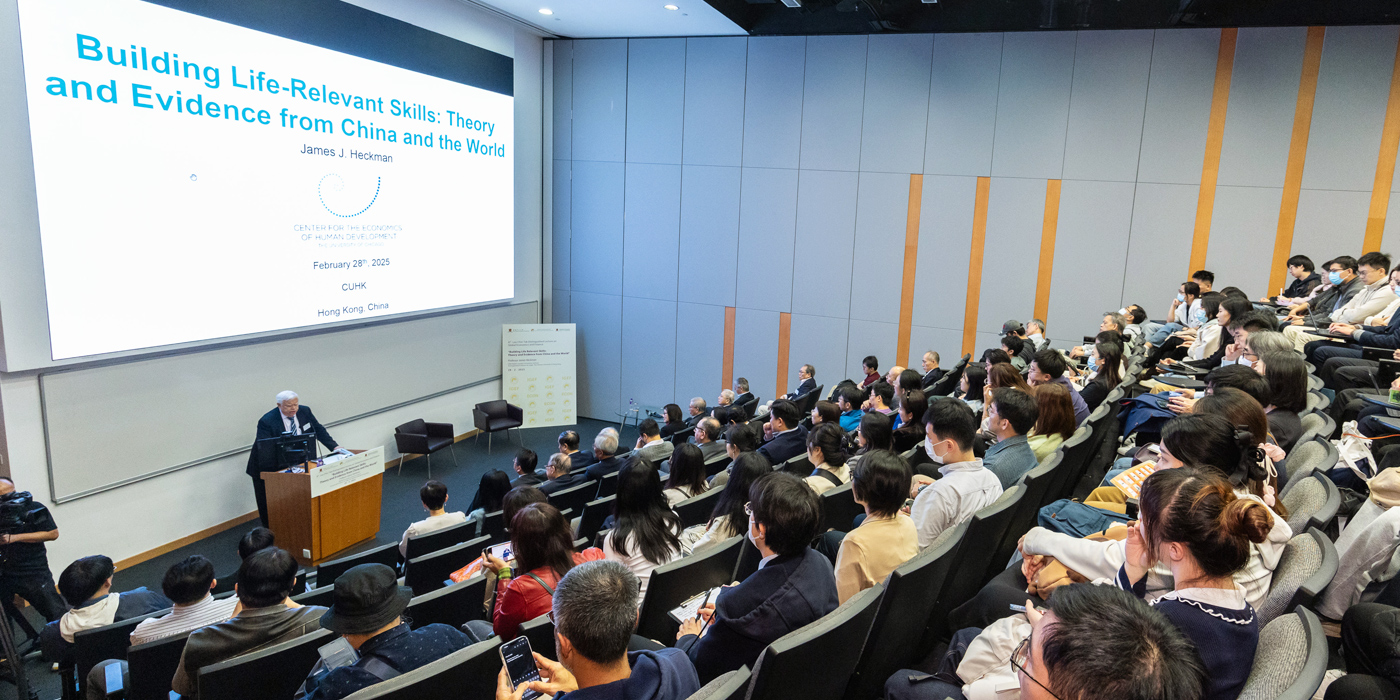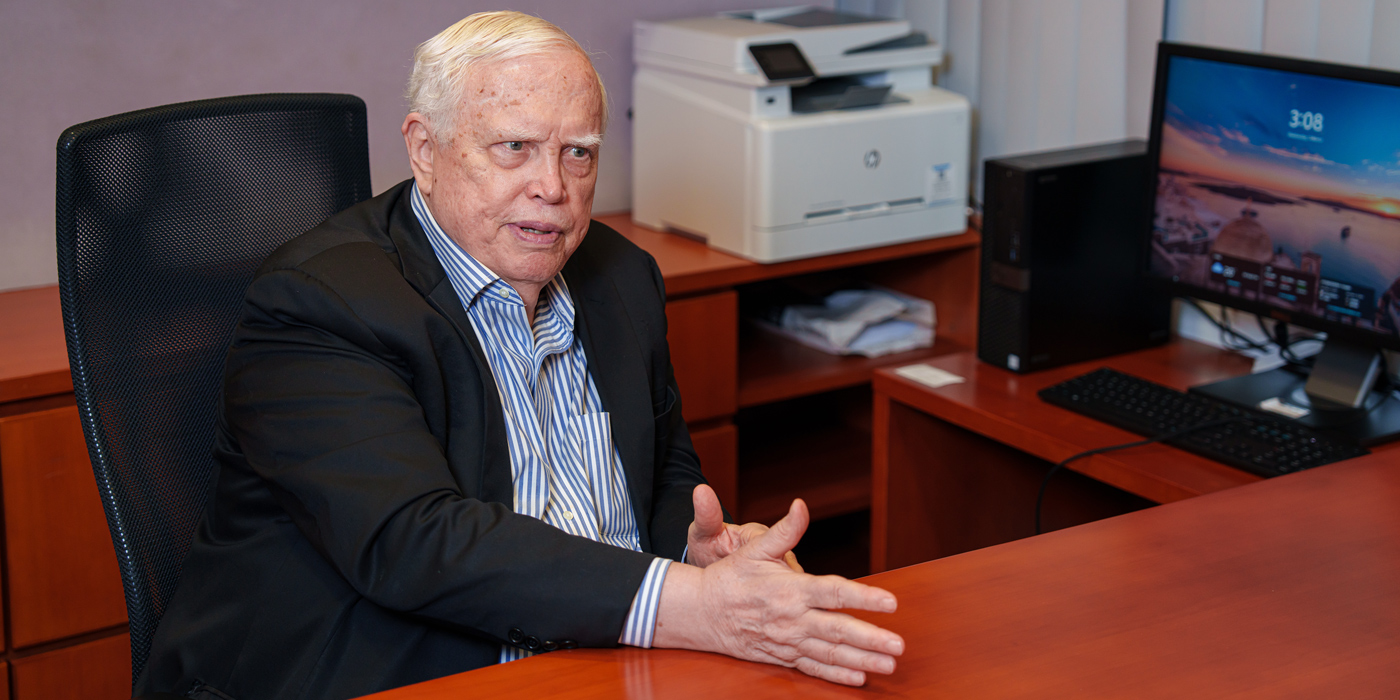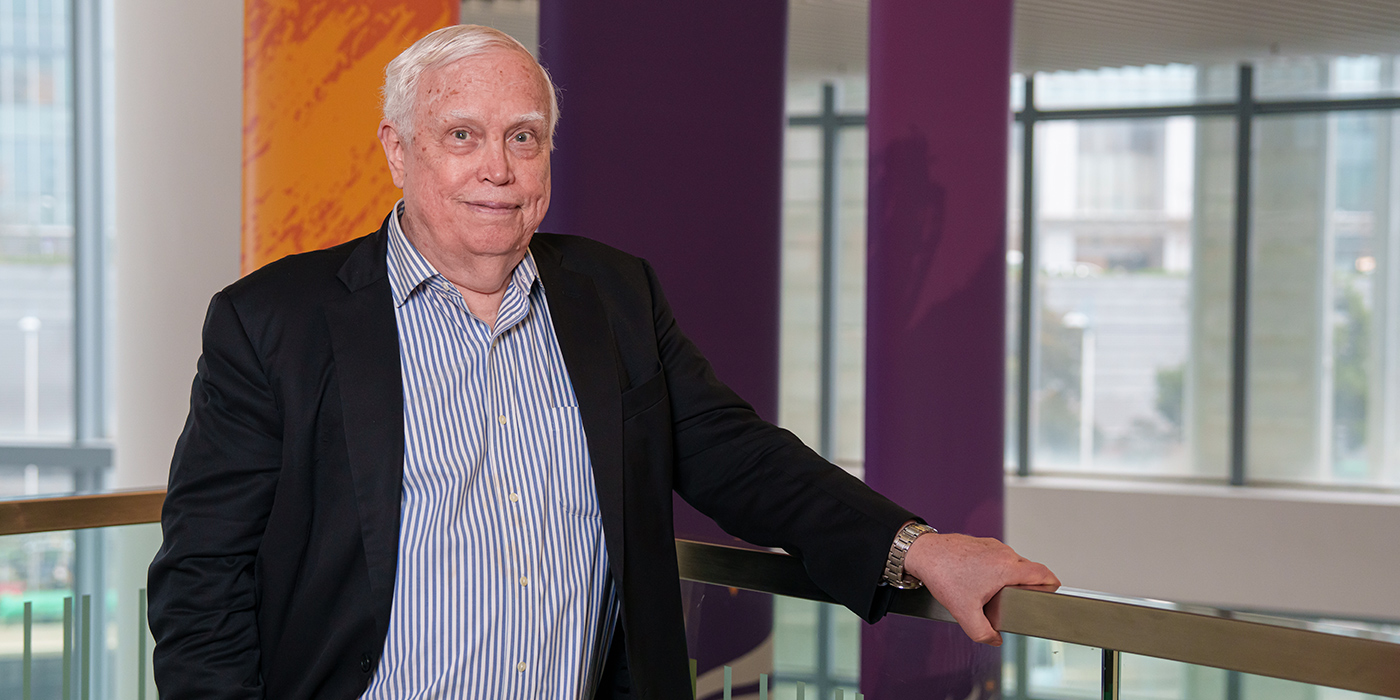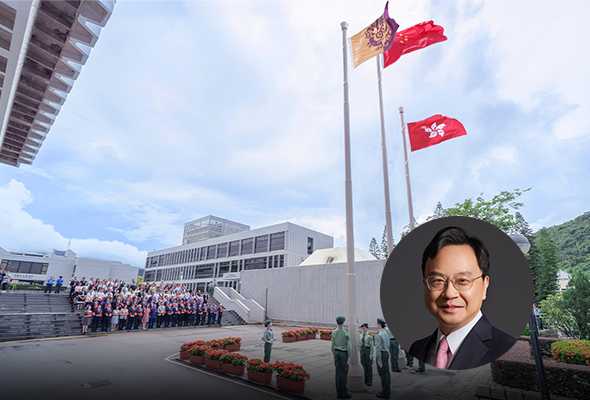Everything, everywhere, all at once
Distinguished Professor-at-Large James Heckman is constantly on the go and he puts it down to one word: curiosity
30 April 2025
The night before his interview with CUHK in Focus, Professor James Heckman was up until 1:30 a.m., on a Zoom call with colleagues around the world. He was no less spirited the next morning when he woke to watch US President Donald Trump’s address to Congress. The professor says, “I’m excited. I like to learn things, even when I’m wrong”. This curiosity and thirst for knowledge has powered the Nobel laureate in Economic Sciences and CUHK’s Distinguished Professor-at-Large through his many decades of research and travel.
In late February, Professor Heckman gave a public lecture titled, “Building Life Relevant Skills: Theory and Evidence from China and the World” to a packed audience at CUHK. One of the major preoccupations of Professor Heckman’s recent research, which he shared with the audience, has been the effectiveness of high-quality interventions in child skill development. Evidence has repeatedly shown that “social and psychological skills that we previously dismissed play a very fundamental role in the modern economy”. Professor Heckman therefore believes it important to cultivate these skills in children as early as possible.
But the professor was also eager to point out during the lecture that “development” did not simply mean throwing money at children to lift them out of poverty. Instead, it has long been his belief that “if we take even very disadvantaged children and we build their base in early years, we create the opportunity for them to exploit advantages that occur later on”. In other words, if children get to grow in an excellent environment, then they can more easily overcome any developmental disadvantages.

Giving children a shot at life
Professor Heckman had already made a name for himself in different research fields before his work on child development. For many years, he studied inequality in African American communities, and his 2000 Nobel prize was recognition for rectifying biases found in data selections. After a visit to Hong Kong in 1997 as the city returned to China, a fascination with the country took hold. A longtime acquaintance of former CUHK Vice-Chancellor Professor Lawrence Lau, who also turned up for the lecture, he has since developed a lasting connection with China and the University in particular, as evidenced by the honorary doctorate conferred upon him in 2024 and his current professorship. He says the latter acts as “an extension—it allows me to continue my study in China”.
Indeed, the professor has many projects going on in the country. Chief among these is the China REACH programme, conducted in conjunction with the China Development Research Foundation, a national public organisation. This study was adapted from Jamaica’s highly influential home-visiting programme, Reach Up and Learn, established more than 30 years ago. The Chinese version concerns early child development and specifically touts a series of interventions that help children in low-resource areas build important skills in life. One example involves encouraging educated people in local communities to visit other families so as to foster a better environment for children. The need for few resources or technology to set up makes this approach’s appeal to developing countries considerable.
The results so far have been promising. After a pilot scheme in Gansu province that involved 1,500 families with children aged six to 36 months, Professor Heckman noticed how “the children in the China version were growing and acquiring skills at the same rate as the Jamaica programme”. The Jamaican participants had shown advancement in retaining executive functioning skills—which the professor defines as “the ability to make decisions, self-control, and the ability to manage their lives”—until the age of 35, and similar trends have emerged in the Chinese study. Working with the foundation, the professor has since collected data from children up to the age of nine, and from as far away as Tibet; his results have attracted much interest from international academics as well as policymakers. “If this project continues, and we continue to develop at this rate … this is going to be a major influence and improvement in the understanding of child development,” says the professor.

Wide range of influences
The multiple disciplines supporting China REACH — psychologists, biologists and statisticians — reflect the trajectory of Professor Heckman’s own academic life. He started in physics at Colorado College, a liberal arts college in the US, but graduated with a degree in mathematics — “I didn’t like building oscilloscopes … and maths seemed easier”—and even then his curiosity compelled him to continue exploring other subjects. The turning point came when he “accidentally” enrolled in an economics course and read a textbook by Saint Lucian economist W. Arthur Lewis. “He had a vision which put together political science, economics, philosophy, sociology, and it had a notion of how economies developed, especially less developed economies.”
This varied combination appealed to Professor Heckman, who read Lewis’ textbook in one sitting; coupled with his interest in the current affairs of the 1960s, he gradually switched to economics. Since then, he has constantly emphasised how tackling social and economic problems requires a much more holistic view of society. He cites Austrian economist and fellow Nobel laureate Friedrich Hayek: “Nobody can be a great economist who is only an economist”. In other words, an economist must learn from different fields and be aware of how their work might bleed into other areas of academic expertise.
It is a quote that the professor has taken to heart. Since graduating from Princeton University with a PhD in 1971, he has worked with biologists, statisticians and especially psychologists to better understand how economic environments affect humanity, and henceforth devise better policies for human development. “If people are smart enough, tolerant enough and open enough, people from very different fields can really learn from each other,” he says.

‘A deep curiosity I love to satisfy’
Despite now being in his 80s, the professor continues to travel extensively for his research. Throughout the interview, he intersperses anecdotes from his adventures, from sightseeing in Xian city to a visit of the Hmong people in Yunnan province. The week after our chat, he jetted off to organise a conference at Jinan University in Guangzhou; a trip to the Kazakh community in northern Xinjiang is on the cards.
If this jet-setting life sounds like the professor is everywhere all at once, he confesses readily to the impetus behind it: a great love for the puzzles that the world keeps offering to the curious. “I have a deep curiosity that I love to satisfy. I am very interested in things that are apparently not even close to what I should be interested in.” Five and a half decades into his storied career, Professor Heckman is no less keen on all the possibilities humanity has offered, still in search of a better world.
By Chamois Chui
Photos by Steven Yan




















